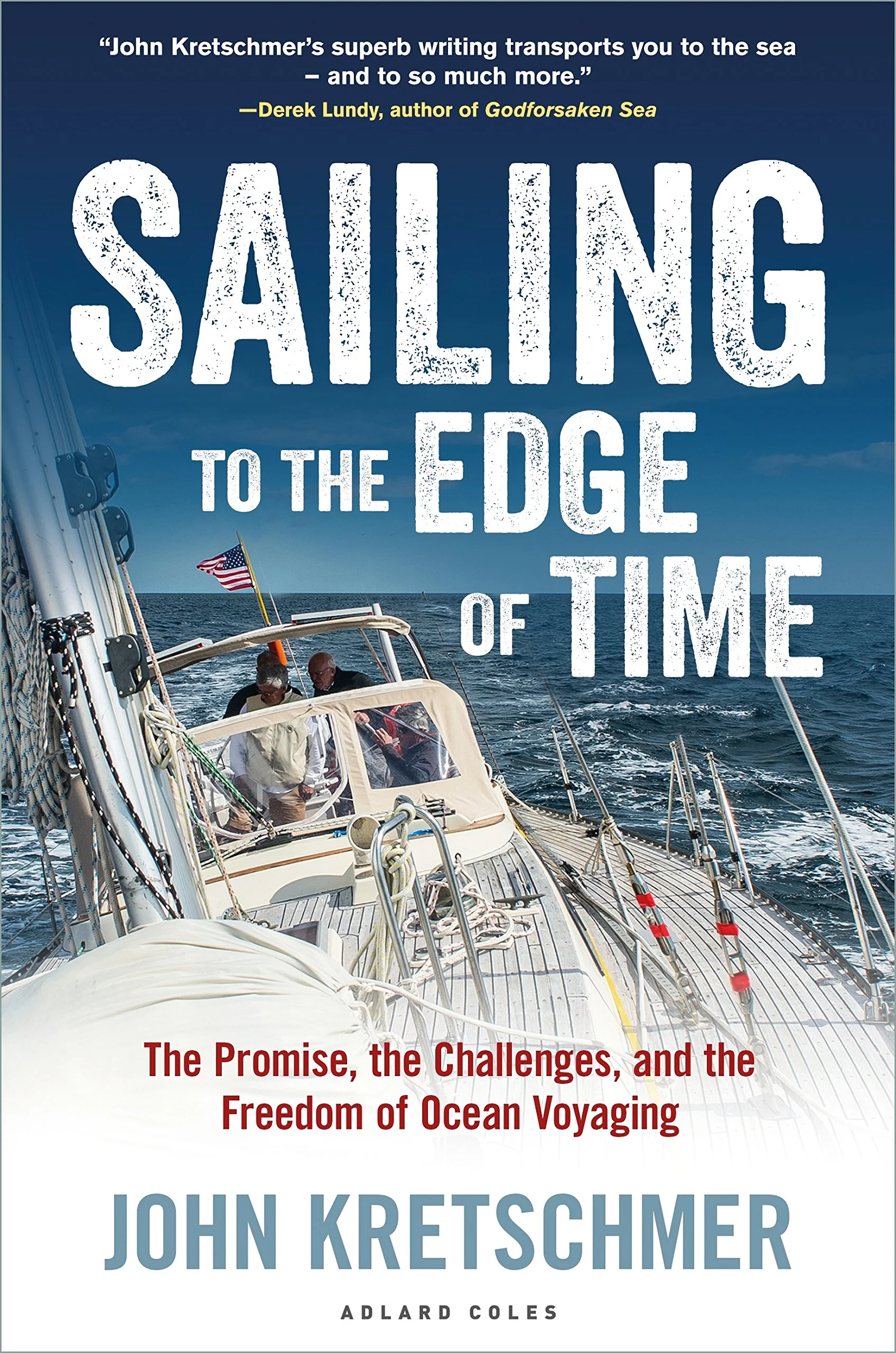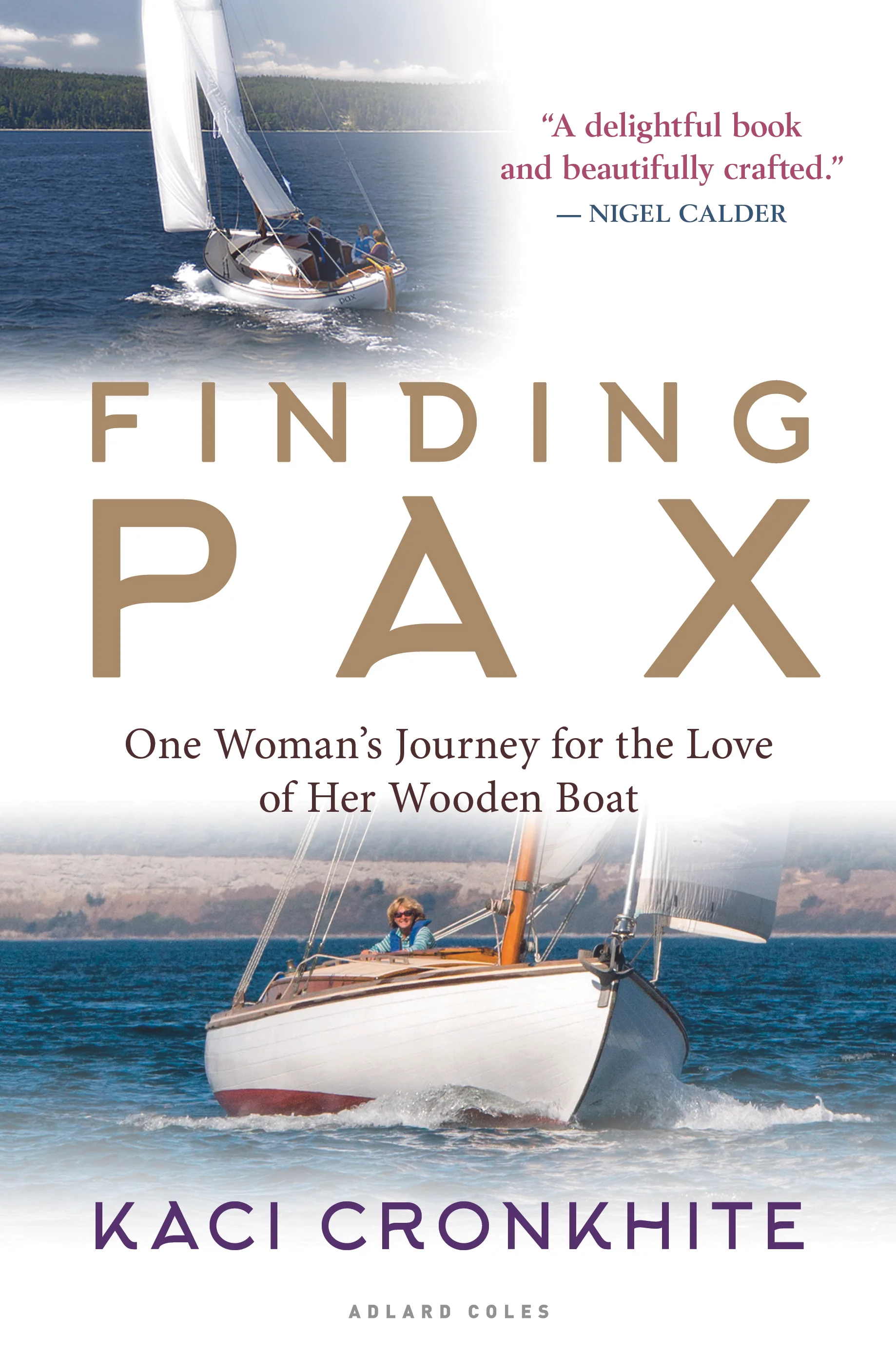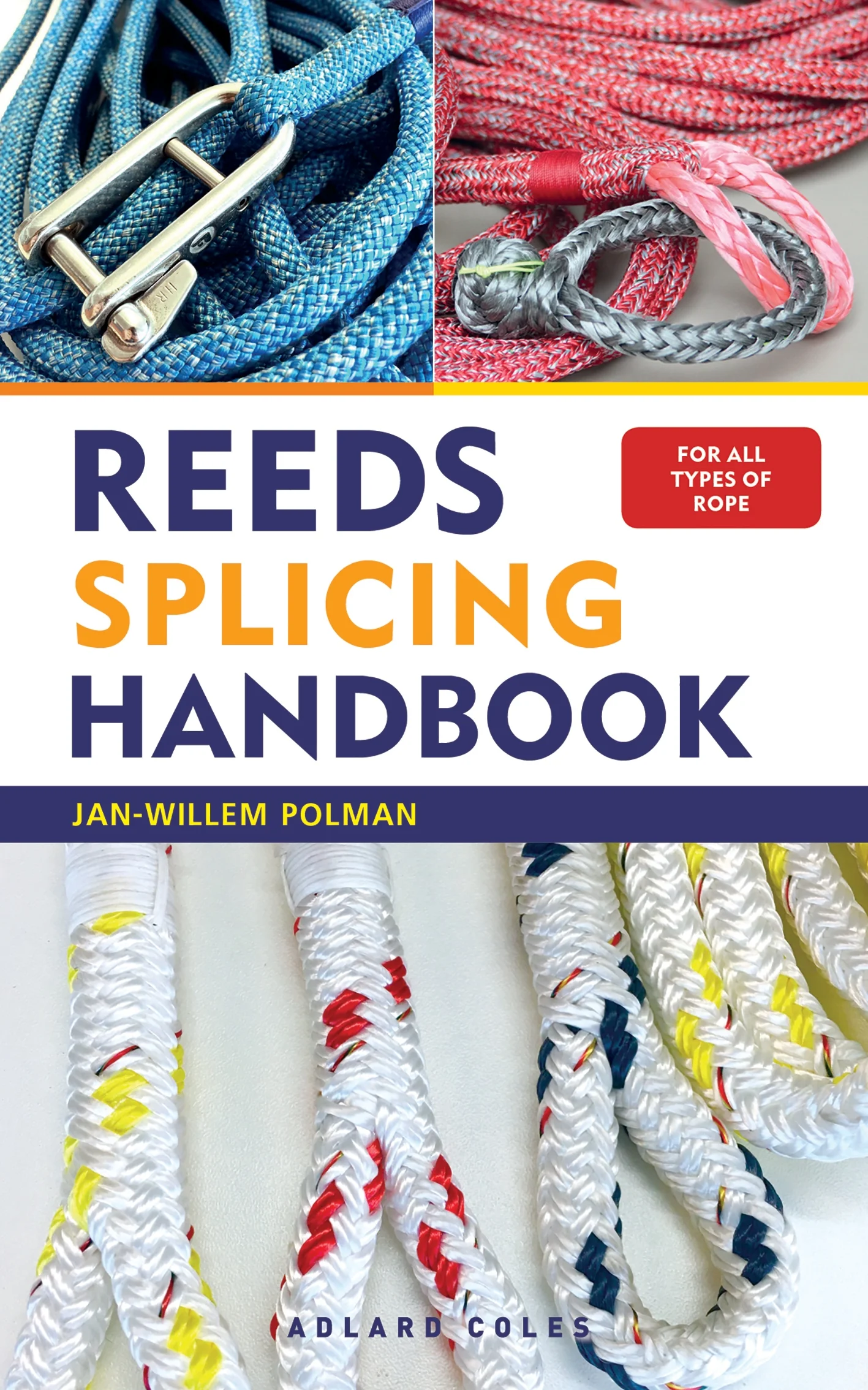Maud Berridge was a captain’s wife who accompanied some of his regular trips to Australia in the 1880s, completing a circumnavigation when the owners ordered a return via San Francisco. Their ship was the Superb, a three-masted clipper carrying passengers who were either emigrating or travelling ‘for health’. Some of Maud’s diaries have survived and have been diligently researched and put in context by her great granddaughter. Just occasionally the diligence is excessive but Maud’s experience certainly adds to our understanding of women at sea. She helped her husband copy up his log, organised and applauded shipboard entertainment, visited the sick, hovered anxiously over unsuitable flirtations. Her conclusion? ‘A long sea voyage is a great test of character.’
Read MoreAutobiography, personal philosophy, adventure and advice – John Kretschmer’s new book criss-crosses the oceans of the world and different periods of the author’s sailing life. There are many action-packed episodes, often terrifying, but this is also a literary book where wide reading supports the central message. ‘A small boat under press of sail, surrounded by the steel blue sea with a good crew poised to take whatever comes their way is the perfect environment to unleash eudaemonia.’ For Kretschmer Aristotle’s concept of well-being entails frequent periods of strenuous effort and thousands of miles under the keel, as well as regular meaning-of-life discussions during ‘Captain’s Hour’. People pay to sail with him: the majority form deep friendships and return.
Read More“What started out as a single-handed voyage had become anything but.” A single-handed circumnavigation had been Adrian Flanagan’s dream since he was 15 and read Francis Chichester. His story begins with intense individualism; separating from his wife, determined to achieve something unique, swept overboard after neglecting his promise to wear a harness. It develops much more interestingly as he is forced to accept his dependence on others; on his yacht Barrabas, on his ex-wife, Louise, on all the people who enable his passage westwards round the Horn and through Russia’s Northern Sea Route. Even the murder of dissident Litvinenko may have contributed to achieving the necessary permissions. Flanagan’s experiences are dramatically recounted and his reflections are impressively honest.
Read MoreFor the first-time sailor dreaming of the Med, this book is a must. Rod Heikell’s initiation was in 1976 in a 20ft plywood yacht. Since then, he’s upsized and up-skilled, producing an extensive series of detailed cruising guides with wife Lu. This book offers the overview, including ways to get there if you don’t want to sail. Checklists and regulations are brought up to date, as are costings. There’s plenty of shrewd advice for the longstay sailor as well as the summer holidaymaker and, for the returner, the passage-planning section may inspire more unexpected explorations into the diversity of this inland sea.
Read MoreIt’s described as a ‘real-life Swallows and Amazons’ but there are no inland lakes or green-feathered arrows here. Clutterbuck’s late 1960s teen adventures in the Wayfarer dinghy Calypso involved high-octane sea sailing; running for shelter through rocks and breakers in the Bay of Biscay with the wind rising Force 7 is several notches up from being caught in the dark off a fictionalised Bo’ness on Windermere. From age 14, Clutterbuck set himself and his intrepid companions extraordinary challenges as they braved the Atlantic coast via Bordeaux to the Med and voyaged north as far as Oslo. The sailing is white-knuckled, the resourcefulness breathtaking. Arthur Ransome would have been in awe.
Read MoreColumbus was delusional and manic-depressive; Nelson’s sailors were brain-damaged from hitting their heads on Victory’s low deck beams and drinking too much rum; Slocum was dysfunctional and unemployable and the methodical insanity of Donald Crowhurst continues to fascinate sailors and non-sailors alike. Nic Compton’s wide-ranging survey of madness at sea goes beyond these headline grabbing stories. He investigates the records of patients in the Navy’s Haslar asylum and teases out the psychological implications as the Age of Sail became the Age of Diesel. Perhaps most interesting of all to yachtsman are the chapters on hallucinations, cabin fever and outbreaks of violence on board. Highly recommended.
Read MoreTurn to Starboard, the charity that runs the Merseyside pilot schooner Spirit of Falmouth, aims to use the power of the sea and sailing to heal those who have been mentally damaged by war. It’s impressively well-organised and it works. This account of Spirit’s 2016 circumnavigation of the British Isles has a great line in banter and the sort of team-building that thrives on practical jokes, trips to the pub and water fights. Threaded through are the stories of individuals who have seen human cruelties beyond imagination. “Sailing,” wrote one of them “gives my brain a chance to rest. Everything else can go fuck itself.”
Read More













